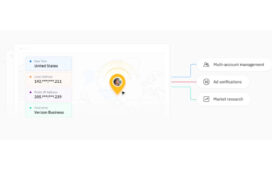Communication was brief. Spoken words vanished into the ether; even written letters could be lost, destroyed, or faded with time. However, the advent of digital communication has created an illusion of permanence. When we send a text, email, or social media post, it feels like we’re making a permanent record – one that could exist forever in the vast archives of the internet.
This sense of permanence can be both comforting and unsettling. On one hand, it allows us to document and preserve our thoughts, experiences, and interactions for posterity. We reflect on old messages and posts as a digital diary. On the other hand, the permanence of our digital footprint can be a double-edged sword. An ill-advised tweet from years ago resurfaced and damaged our reputation. A confident private message can be screenshotted and shared without our consent.
The reality is that the permanence of digital communication is often outside our control. Once we hit “send,” our words and images are at the mercy of the recipient, the platform, and the whims of the internet at large. This lack of control over the lifespan of our messages can create a sense of unease and vulnerability. We may censor ourselves, knowing that our words could come back to haunt us. We may feel exposed, knowing that our private conversations could be made public anytime.
Privatenoter challenges permanence
Privatenoter offers a radical alternative to the default permanence of digital communication. By designing messages to auto-delete after a set period, Privatenoter fundamentally changes the equation of online interaction. Suddenly, our conversations have an expiration date. They become ephemeral, vanishing into the digital ether just like the spoken words of old.
This shift from permanence to transience has profound implications for online communication. When we know our messages will disappear, we may feel more free to express ourselves authentically without fear of long-term consequences. We may be more willing to share sensitive information, knowing it won’t be accessible indefinitely. We may feel greater control over our digital footprint, knowing that our past conversations won’t come back to bite us.
What is Privnote used for? Privatenoters’ self-destructive messages also change the power dynamics of online communication. In a world where screenshots and forwarding make it easy to share private conversations without consent, the automatic deletion of messages levels the playing field. Both parties know the conversation is temporary, reducing the temptation to share or expose the other’s private thoughts. The temporary nature of the interaction creates a shared understanding of privacy and trust.
Beyond challenging permanence, Privatenoter also takes a stand for privacy with its robust encryption protocols. By encrypting messages end-to-end, Privatenoter ensures that only the intended recipient reads the contents. Not even Privatenoter itself accesses the messages that pass through its servers. This added layer of security further reinforces the platform’s commitment to putting control back in the hands of users.
The encryption features of Privatenoter add another dimension to the question of permanence. Even if a message were to be intercepted or a screenshot taken before the auto-deletion, the contents would remain indecipherable to anyone but the intended recipient. In this way, Privatenoter creates a form of permanent privacy, even in the face of impermanent messages. The platform ensures that even if a conversation is briefly preserved, it remains permanently secure.
Privatenoter’s challenge to permanence represents a new paradigm for how we interact online. It asks us to rethink our assumptions about the lifespan and security of our digital conversations. It invites us to embrace impermanence as a feature, not a bug, of online communication.







